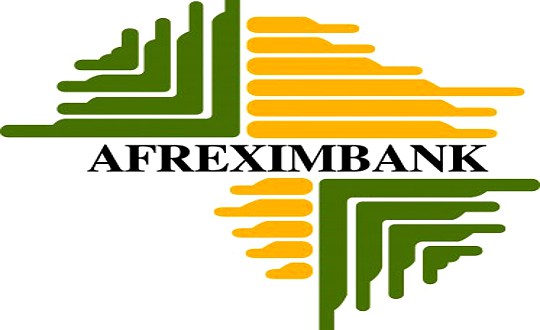Intra-Africa
trade has received a boost following a $1 billion deal sealed by the
African Export-Import Bank (Afreximbank) and the Export Credit Insurance
Corporation (ECIC) of South Africa, to finance programmes that will
expand trade and investment between South Africa and the rest of the
continent.
trade has received a boost following a $1 billion deal sealed by the
African Export-Import Bank (Afreximbank) and the Export Credit Insurance
Corporation (ECIC) of South Africa, to finance programmes that will
expand trade and investment between South Africa and the rest of the
continent.
ECIC, a company that provides political and
commercial risk insurance to South African exporters , signed the deal
with the Afreximbank in Johannesburg last month, announcing the first
Intra-African Trade Fair (IATF), which will be held in Cairo from
December 11 to 17.The
trade deal came about after 44 of Africa’s 54 countries signed the
landmark Continental Free Trade Area (CFTA) in Nairobi, Kenya, in March
to increase trade among African countries, which is relatively low
compared with other regions.Intra-African trade stands at 18per cent
while trade in the European Union (EU) and Asia is about 60per cent.
commercial risk insurance to South African exporters , signed the deal
with the Afreximbank in Johannesburg last month, announcing the first
Intra-African Trade Fair (IATF), which will be held in Cairo from
December 11 to 17.The
trade deal came about after 44 of Africa’s 54 countries signed the
landmark Continental Free Trade Area (CFTA) in Nairobi, Kenya, in March
to increase trade among African countries, which is relatively low
compared with other regions.Intra-African trade stands at 18per cent
while trade in the European Union (EU) and Asia is about 60per cent.
With
1.2 billion people in Africa, the CFTA will create one of the largest
free trade market zones in the world since the World Trade Organisation
was created in 1995.
1.2 billion people in Africa, the CFTA will create one of the largest
free trade market zones in the world since the World Trade Organisation
was created in 1995.
Afreximbank
President Benedict Oramah, said the bank and the ECIC would work
together to identify, prepare and appraise trade transactions and
projects.The two institutions, he said, would explore
co-financing and risk-sharing opportunities and share knowledge – with
particular emphasis on intra-Africa trade matters – through technical
cooperation, staff exchange, research and joint events.
President Benedict Oramah, said the bank and the ECIC would work
together to identify, prepare and appraise trade transactions and
projects.The two institutions, he said, would explore
co-financing and risk-sharing opportunities and share knowledge – with
particular emphasis on intra-Africa trade matters – through technical
cooperation, staff exchange, research and joint events.
“The
joint initiative will support businesses through capacity building and
market-information initiatives, and will help small and medium-sized
entrepreneurs to join regional supply chains,” Oramah said.
joint initiative will support businesses through capacity building and
market-information initiatives, and will help small and medium-sized
entrepreneurs to join regional supply chains,” Oramah said.
“It
will also provide advisory services and guarantees to South African
investors seeking trade and investment opportunities in Afreximbank
African member countries.”
will also provide advisory services and guarantees to South African
investors seeking trade and investment opportunities in Afreximbank
African member countries.”
Oramah
said the initiative provided a platform for the realisation of
Afreximbank’s strategic objectives to prioritise intra-Africa trade,
industrialisation and export manufacturing.
said the initiative provided a platform for the realisation of
Afreximbank’s strategic objectives to prioritise intra-Africa trade,
industrialisation and export manufacturing.
ECIC
CEO Kutoane Kutoane said: “We realise that one of the best ways to
enhance our exporting capabilities as a country is by intensifying
mutually beneficial trade with the rest of the continent.” The
signing ceremony also served as a platform to introduce and discuss the
IATF being organised by Afreximbank and the African Union in Cairo,
Egypt, from December 11 to 17.
CEO Kutoane Kutoane said: “We realise that one of the best ways to
enhance our exporting capabilities as a country is by intensifying
mutually beneficial trade with the rest of the continent.” The
signing ceremony also served as a platform to introduce and discuss the
IATF being organised by Afreximbank and the African Union in Cairo,
Egypt, from December 11 to 17.
IATF
will be an annual event, bringing key players under one roof to share
information and explore opportunities in one another’s countries in
sectors, such as manufacturing, logistics, engineering, construction,
tourism, entertainment, information and communication technology, heavy
industries, finance, and agriculture. The aim is to create a digital
repository and platform to link buyers and sellers. The event, it is
believed will unlock trade among African countries to the value of $25
billion in the next five years.
will be an annual event, bringing key players under one roof to share
information and explore opportunities in one another’s countries in
sectors, such as manufacturing, logistics, engineering, construction,
tourism, entertainment, information and communication technology, heavy
industries, finance, and agriculture. The aim is to create a digital
repository and platform to link buyers and sellers. The event, it is
believed will unlock trade among African countries to the value of $25
billion in the next five years.
Of
the three biggest African economies, only Egypt has signed the CFTA.
South Africa and Nigeria have not signed because of legal and internal
issues. Both countries account for about one-third of the $3.4 trillion
combined gross domestic product across Africa.
the three biggest African economies, only Egypt has signed the CFTA.
South Africa and Nigeria have not signed because of legal and internal
issues. Both countries account for about one-third of the $3.4 trillion
combined gross domestic product across Africa.
Nigeria’s
fear has been that the agreement would destroy local products; South
Africa has to undergo a parliamentary process to get the nod to sign the
CFTA.
fear has been that the agreement would destroy local products; South
Africa has to undergo a parliamentary process to get the nod to sign the
CFTA.
culled:new telegraph





